The Public Health Opportunities and Challenges of Dementia Caregiving
2022 National Conference
Watch the Conference
Thank you for making the conference a success
On June 14th-15th, 2022 we hosted The Public Health Opportunities and Challenges of Dementia Caregiving in Minneapolis, MN. The first national conference of its kind, this event brought together over 500 attendees and a number of national leaders in dementia caregiving policy, public health practice and research, and featured 10 main sessions and panel presentations and various roundtable discussions on a variety of topics.

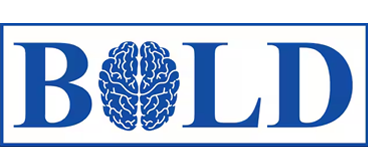

Tuesday, June 14th, 2022
The conference in numbers:
In-person Attendees
on timely issues related to public health practice in dementia caregiving
on a variety of public health policy and practice topics in the space of dementia caregiving
View Posters
Innovative Approaches in Dementia Care
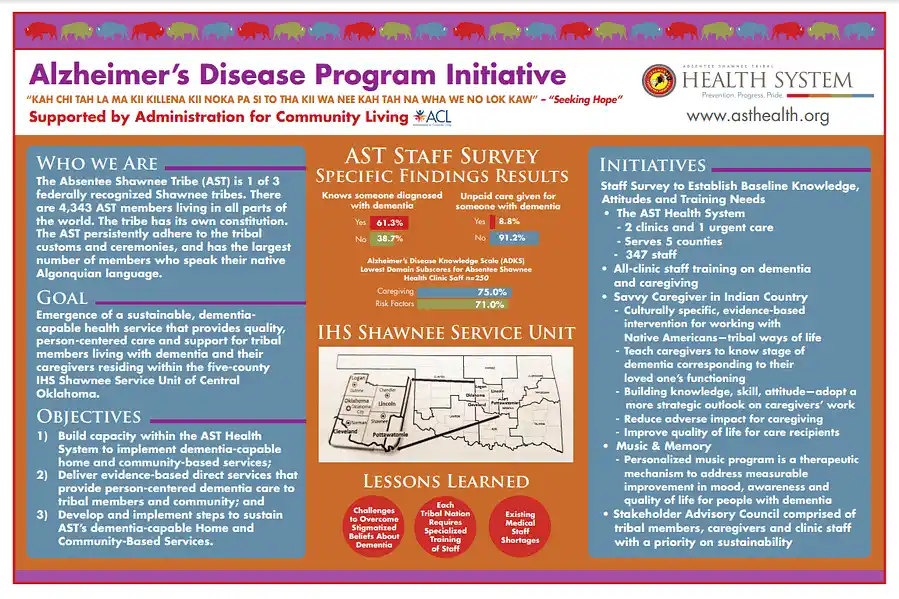
Alzheimer’s Disease Program Initiative
Absentee Shawneed Tribal Health System

Fengpei Yuan, Kristina Wick and Xiaopeng Zhao
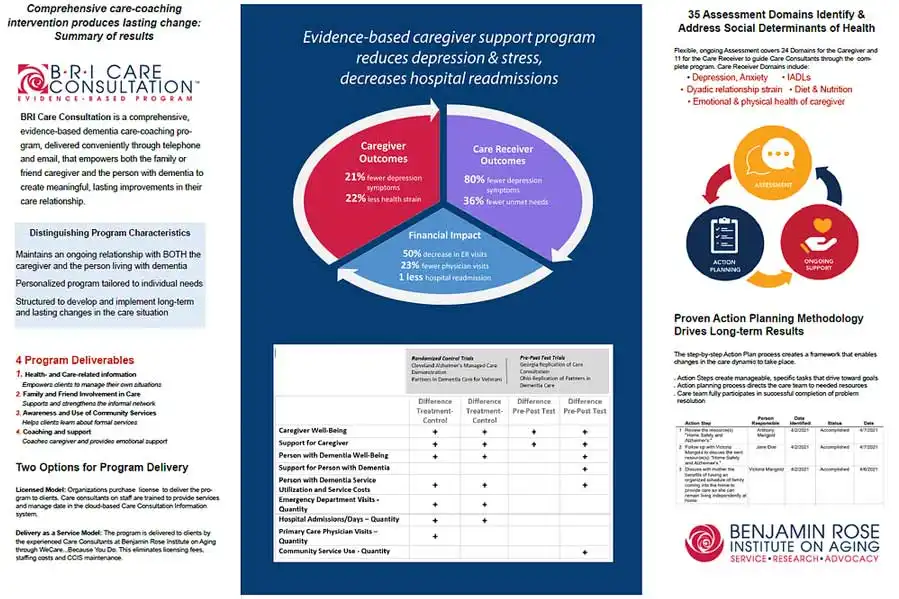
Benjamin Rose Institute on Aging
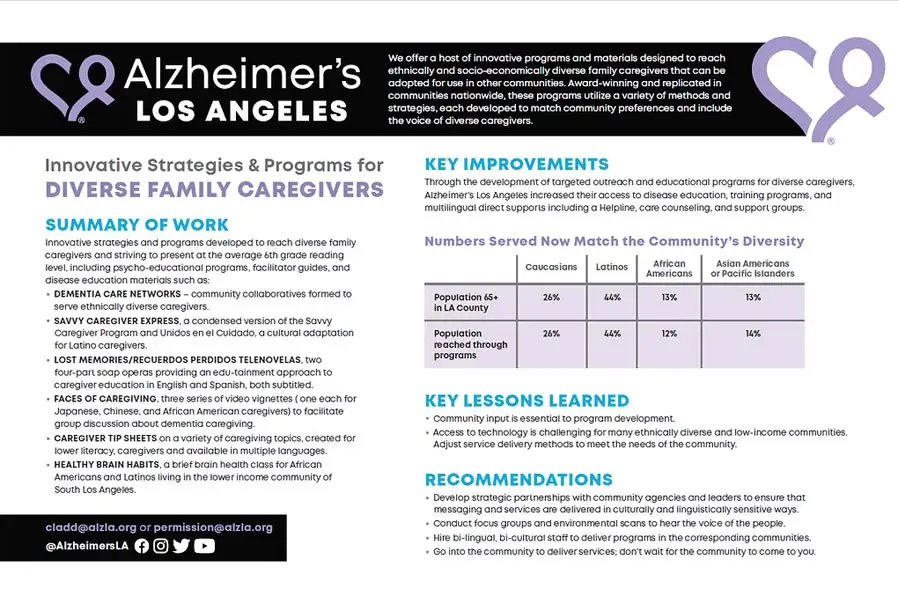
Alzheimer’s Los Angeles
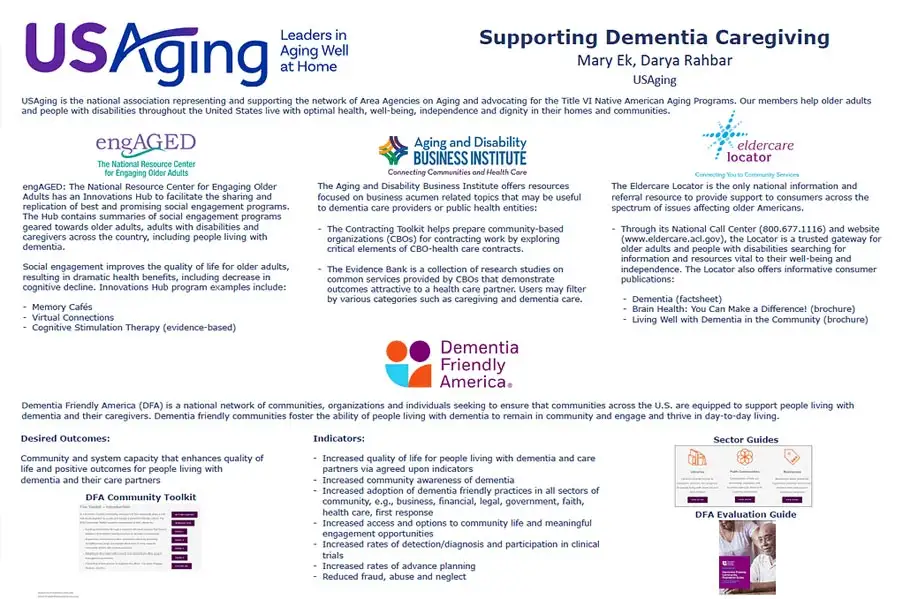
USAging and Dementia Friendly America
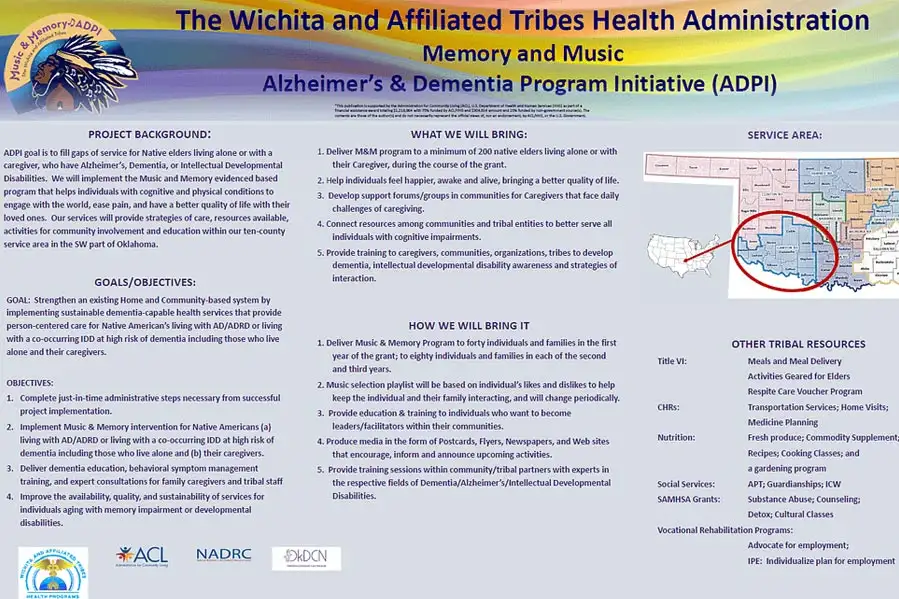
The Wichita and Affiliated Tribes Health Administration
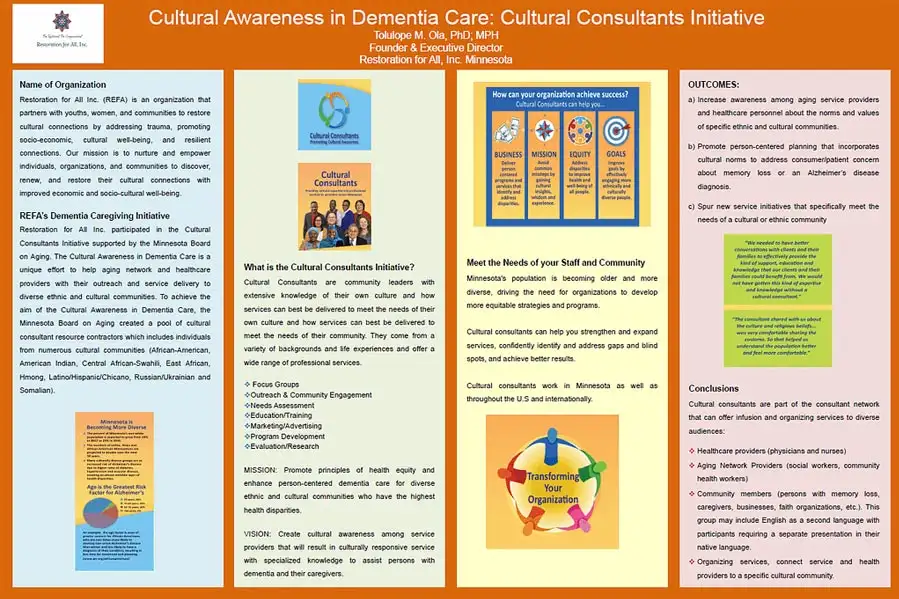
Restoration For All Inc. (REFA)
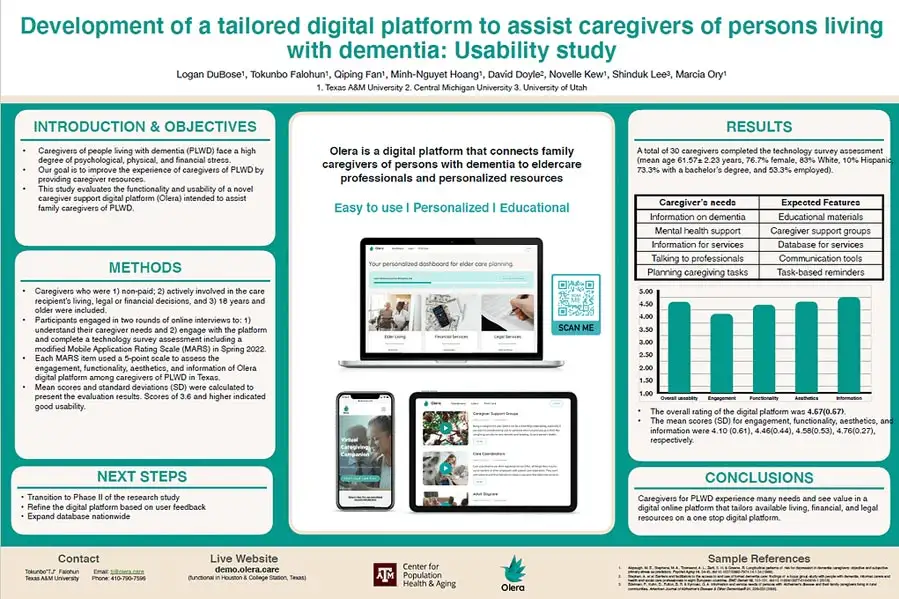
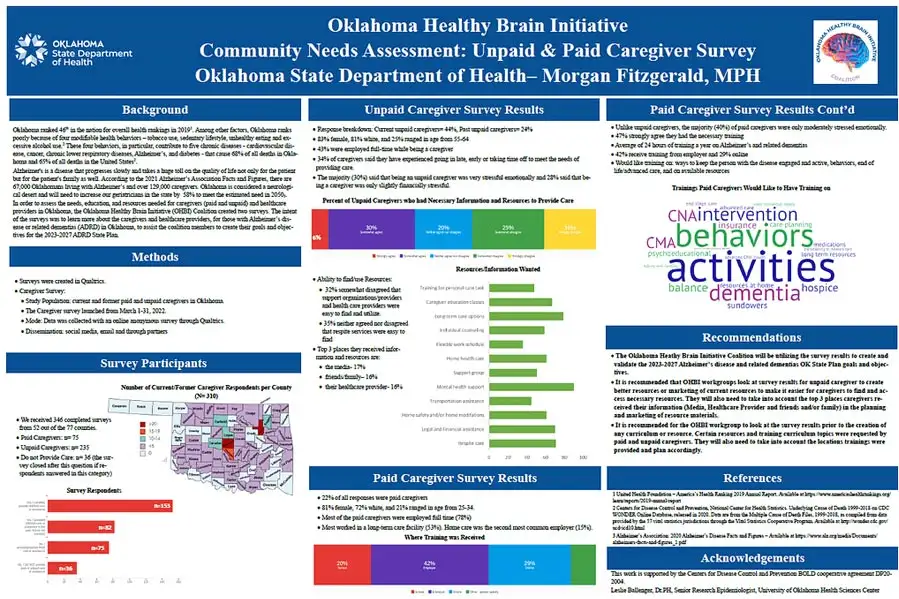
Oklahoma State Department of Health BOLD Core Capacity Public Health Program
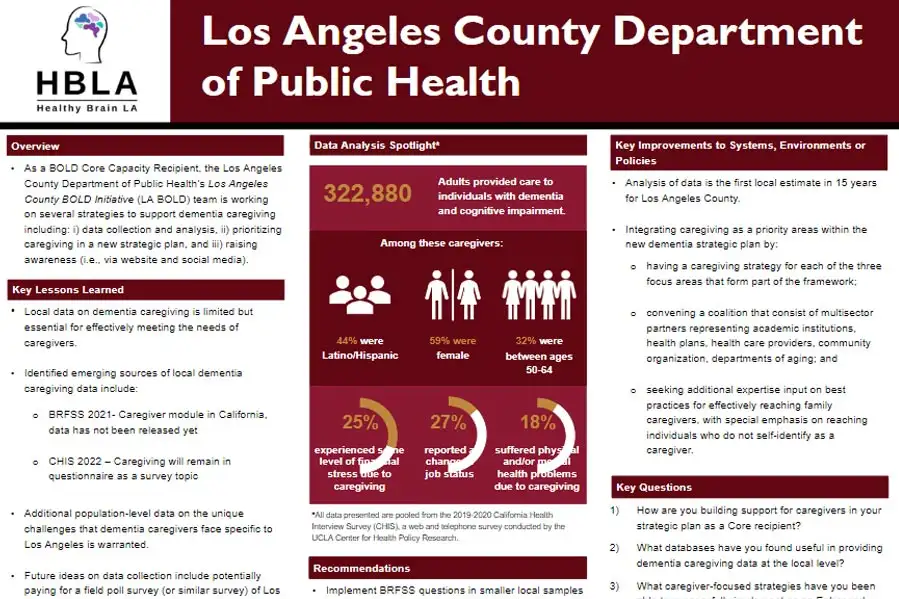
Los Angeles County Department of Public Health BOLD Core Capacity Public Health Program
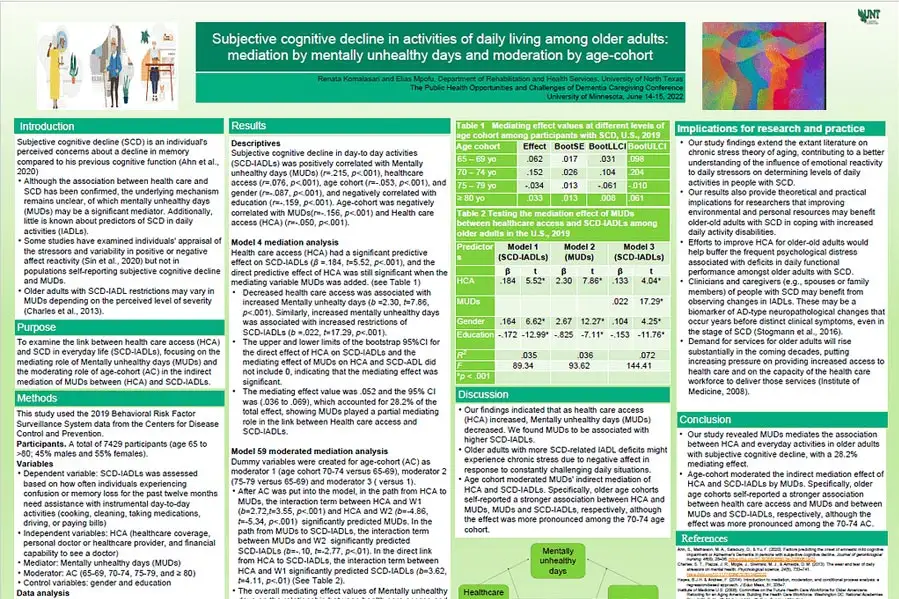
Renata Komalasari and Elias Mpofu, Department of Rehabilitation and Health Services, University of North Texas
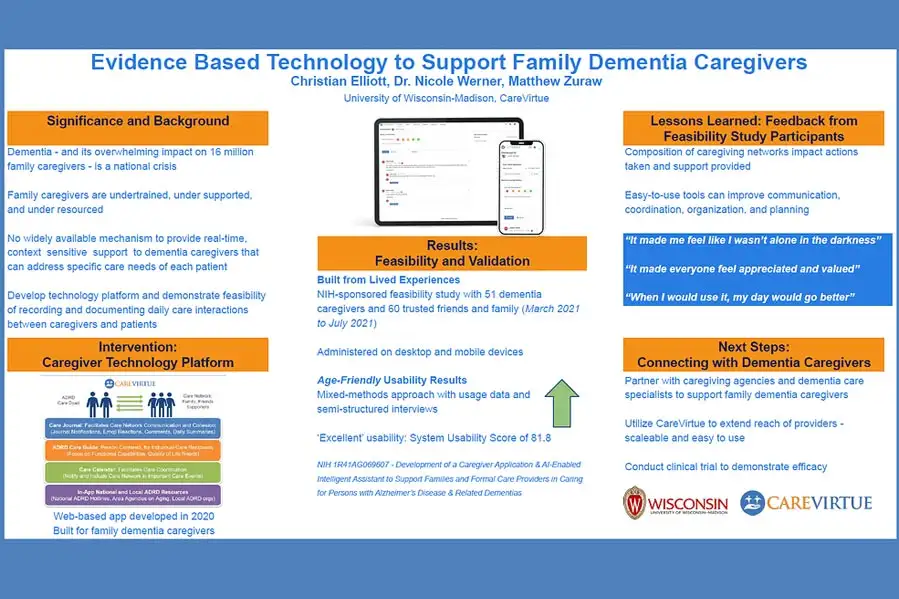
Christian Elliott, Dr. Nicole Werner, Matthew Zuraw University of Wisconsin-Madison
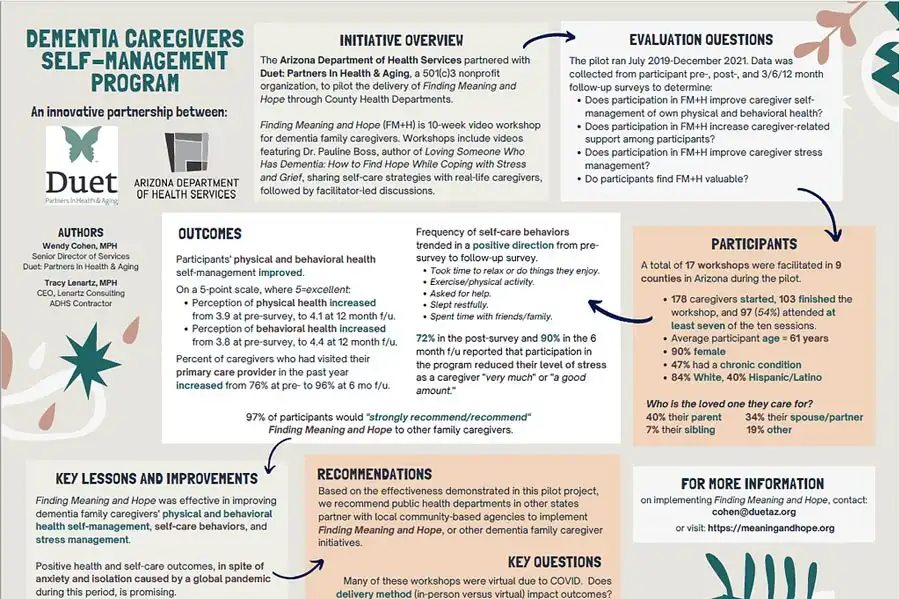
Arizona Department of Health Services Duet: Partners In Health & Aging
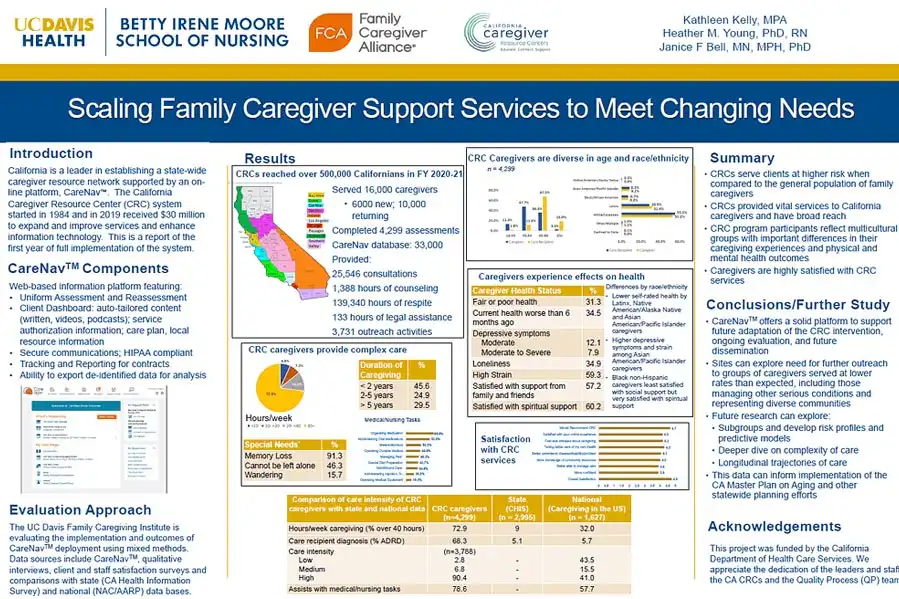
California Caregiver Resource Center UC Davis Health Family Caregiver Alliance
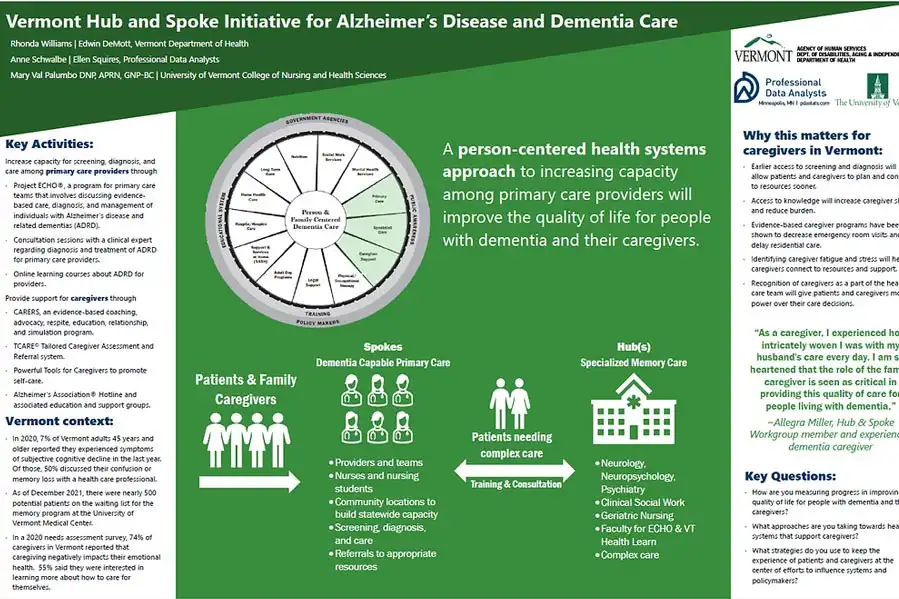
Vermont Department of Health
BOLD Core Capacity Public Health Program
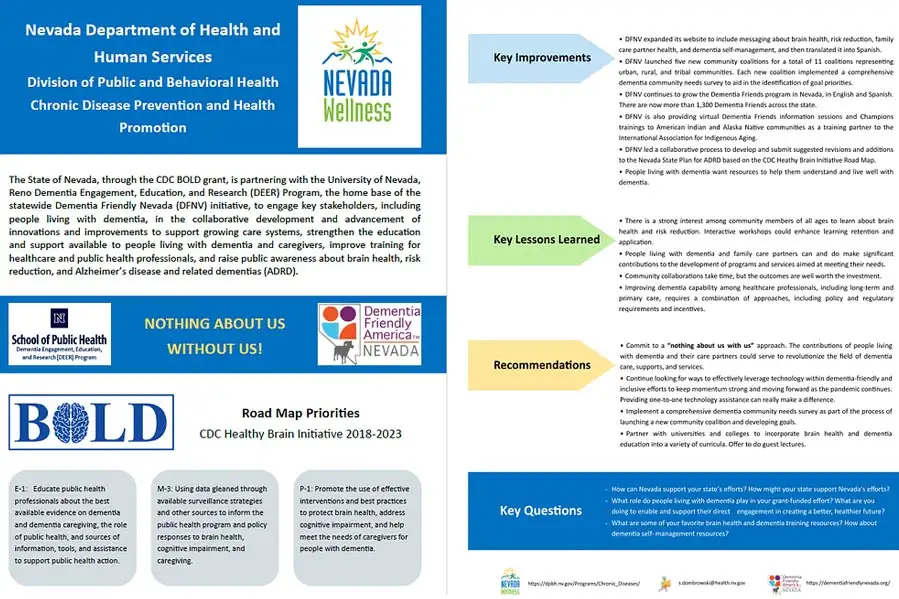
Nevada Department of Health and Human Services BOLD Core Capacity Public Health Program
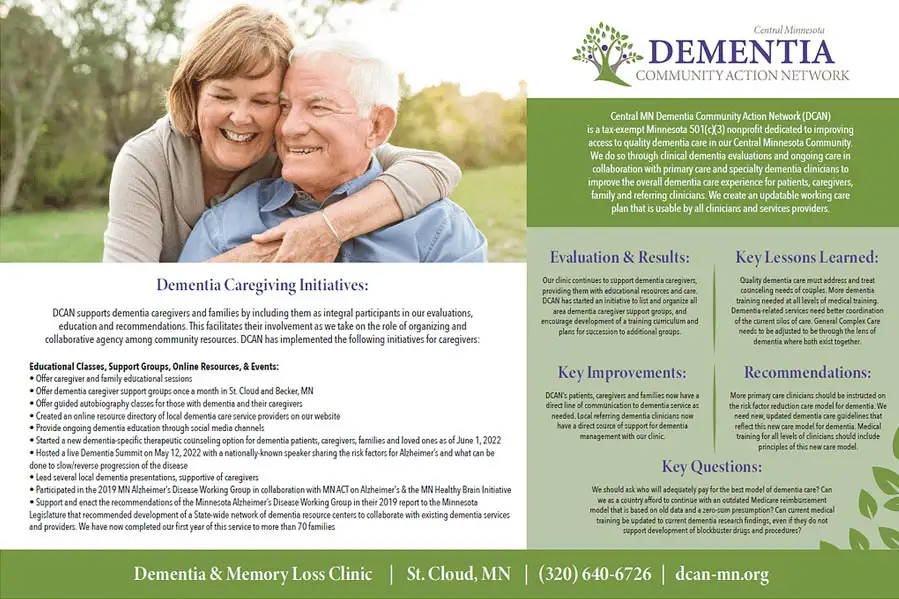
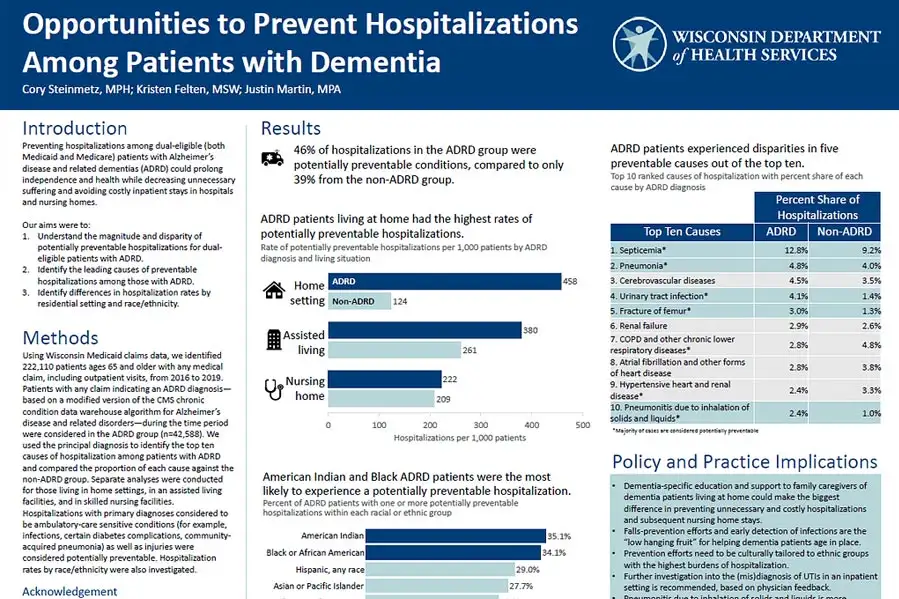
Wisconsin Department of Health Services
BOLD Enhanced Public Health Program
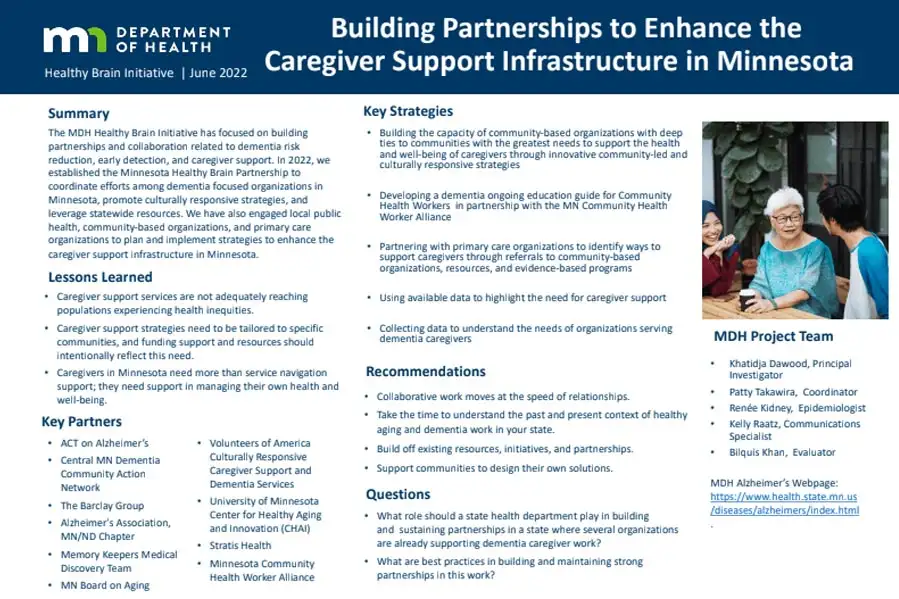
MN Department of Health
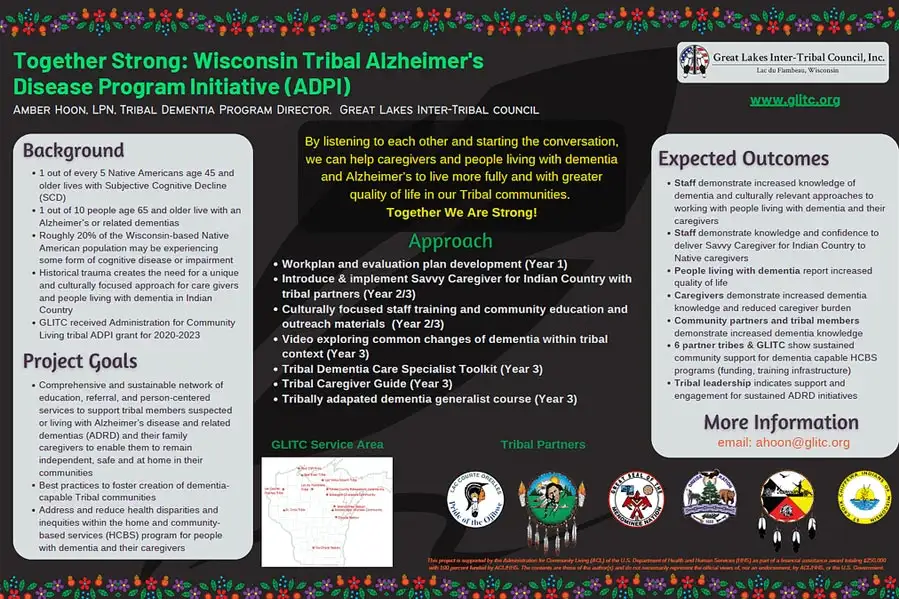
Wisconsin Tribal Alzheimer’s Disease Program Initiative (ADPI)
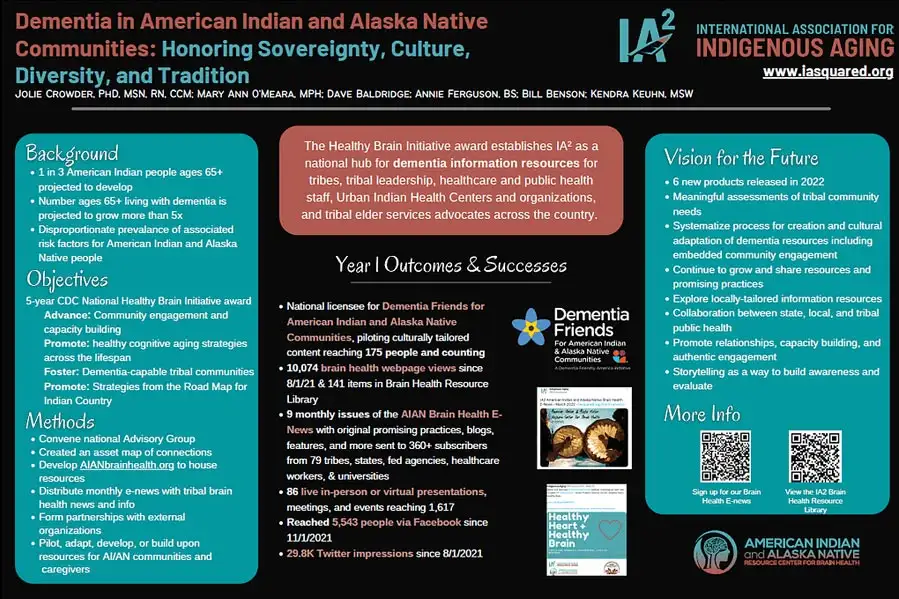
Honoring Sovereignty, Culture, Diversity, and Tradition
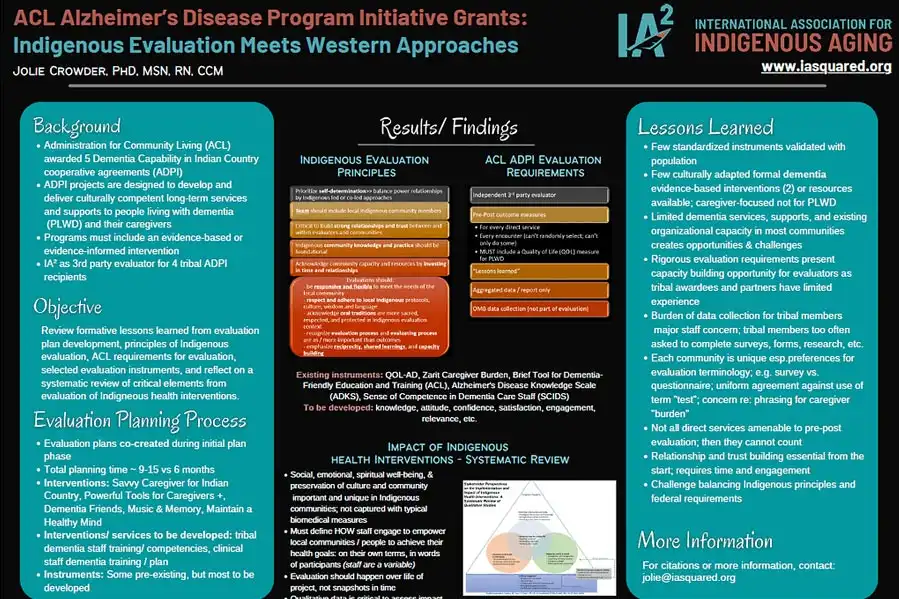
Indigenous Evaluation Meets Western Approaches
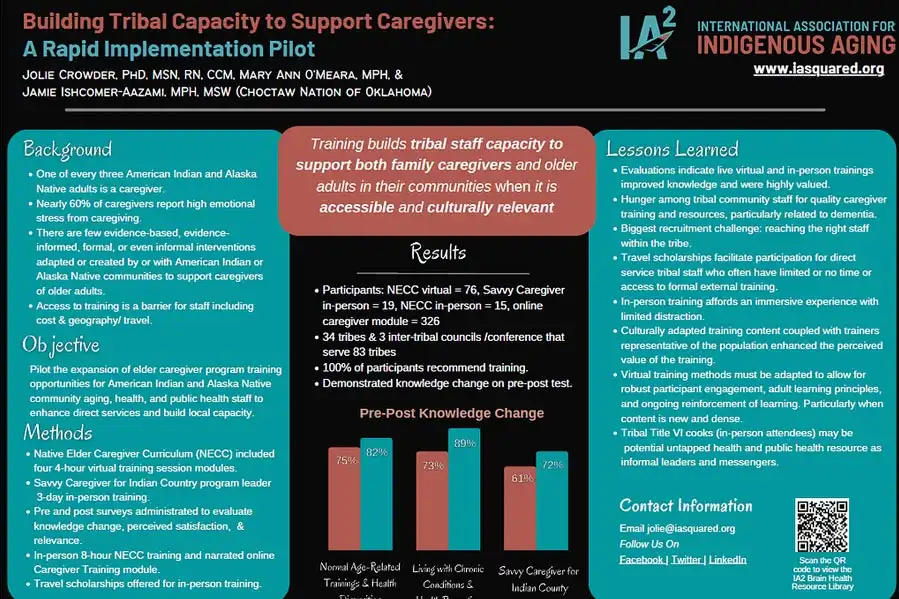
A Rapid Implementation Training Pilot
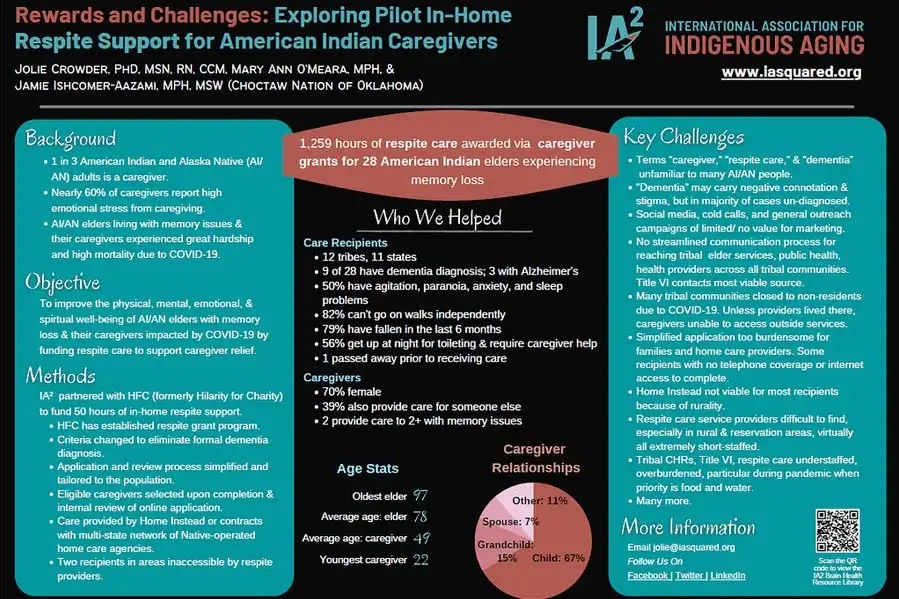
Exploring Pilot In-Home Respite Support for American Indian Caregivers

Alzheimer’s Disease Program Initiative
Absentee Shawneed Tribal Health System
The Absentee Shawnee Tribe of Oklahoma and its Absentee Shawnee Tribal Health System are partnering to build a sustainable dementia-capable health service that provides quality, person-centered care and support for tribal members living with dementia and their caregivers within the five-county IHS Shawnee Service Unit of Central Oklahoma. The program is expected to improve the quality of life for people living with dementia and provide support for caregivers.

A Robot-mediated Dementia Caregiver Education Program
Fengpei Yuan, Kristina Wick and Xiaopeng Zhao
Participants reported a positive user experience and perceived the program to be useful and easy-to-use. The results demonstrate the feasibility of the robot-mediated REACH program to enable the psychoeducational intervention more accessible to dementia caregivers and thereby support caregivers. Our next step is to develop advanced AI technology to improve interaction, engagement, and personalization of the robot-mediated program. Local and national collaborators will be sought out to test the feasibility and effectiveness program under various settings.

BRI Care Consultation
Benjamin Rose Institute on Aging
Established in 1961, the Center for Research and Education, part of the Benjamin Rose Institute on Aging, conducts state-of-the-art research to develop and deliver innovative, high-quality solutions to advance support for older adults and caregivers. Such research has resulted in the development of BRI Care Consultation, a comprehensive evidence-based dementia care-coaching program that addresses the needs of both the caregiver and the person receiving care. BRI Care Consultation has been the subject of multiple research studies over the past two decades, and has been shown in to produce outcomes of decreased feelings of depression in the care receiver, along with fewer hospital readmissions and ER visits. In the caregiver, results included decreased feelings of isolation and reduced strain on the caregiving relationship.
Research to further expand the reach of this program has been ongoing, including current grant funding from ACL to investigate the impact of the program on rural as opposed to urban environments, as well as its impact on the population of individuals with IDD with or at risk of dementia.

Innovative Strategies & Programs for DIVERSE FAMILY CAREGIVERS
Alzheimer’s Los Angeles

Supporting Dementia Caregiving
USAging and Dementia Friendly America

Memory and Music, Alzheimer’s & Dementia Program Initiative
The Wichita and Affiliated Tribes Health Administration

Cultural Awareness in Dementia Care: Cultural Consultants Initiative
Restoration For All Inc. (REFA)
REFA participated in the Cultural Consultants Initiative supported by the Minnesota Board on Aging. Minnesota’s population is becoming older and more diverse, driving the need for organizations to develop more equitable strategies and programs. The Cultural Awareness in Dementia Care is a unique effort to help aging network and healthcare providers with their outreach and service delivery to diverse ethnic and cultural communities. To achieve the aim of the Cultural Awareness in Dementia Care, the Minnesota Board on Aging created a pool of cultural consultant resource contractors which includes individuals from numerous cultural communities (African American, American Indian, Central African-Swahili, East African, and Somali).

Development of a tailored digital platform to assist caregivers of persons living with dementia: Usability study
Logan DuBose1, Tokunbo Falohun1, Qiping Fan1, Minh-Nguyet Hoang1, David Doyle2, Novelle Kew1, Shinduk Lee3, Marcia Ory1 1 Texas A&M University 2 Central Michigan University 3 University of Utah
(Olera) intended to assist family caregivers of people living with dementia (PLWD). Caregivers who were: 1) non-paid, 2) actively involved in the care recipient’s living, legal or financial decisions, and 3) 18 years and older) were included.
Participants in the usability study were engaged in two interview rounds to: 1) understand their caregiver needs and 2) engage with the platform and complete a technology survey assessment [modified Mobile Application Rating Scale (MARS)] via a Qualtrics online form. Each MARS item used a 5-point scale to assess the engagement, functionality, aesthetics, and information of Olera digital platform among unpaid caregivers of PLWD in Texas. Mean scores and standard deviations (SD) were calculated to present the evaluation results. Scores of 3.6 and higher indicated good usability.
Results: 29 caregivers completed the technology survey assessment (mean age 61.57± 2.23 years).
Overall rating of the digital platform was 4.57(0.57), and the mean scores (SD) for engagement, functionality, aesthetics, and information were 4.10(0.61), 4.46(0.44), 4.58(0.53), 4.76(0.27), respectively.
Conclusion: Olera is practical, interactive, easy to use, visually appealing, and informative digital platform to provide resources for caregivers of PLWD.

Oklahoma Healthy Brain Initiative Community Needs Assessment: Unpaid & Paid Caregiver Survey
Oklahoma State Department of Health BOLD Core Capacity Public Health Program
Data was collected with an online survey through Qualtrics. The survey was disseminated via email, social media, and through partners. 346 completed Caregiver Surveys were received and 60 completed Provider Surveys. Preliminary data shows that only 30% of our unpaid caregiver felt they had the necessary information and resources and the top resource they would like more information is on mental health support. Unpaid caregivers informed that the majority receive their training via their employer and gave topics for future trainings. The OHBI will take into consideration the topics for resources and trainings provided by the paid
and unpaid caregivers when creating goals/objectives for the updated 2023-2027 ADRD State Plan and printed materials.

Healthy Brain LA
Los Angeles County Department of Public Health BOLD Core Capacity Public Health Program

Subjective cognitive decline in activities of daily living among older adults: mediation by mentally unhealthy days and moderation by age-cohort
Renata Komalasari and Elias Mpofu, Department of Rehabilitation and Health Services, University of North Texas
This study used the 2019 CDC BRFSS data, self-reported responses to questions assessing ADL, HCA, MW, and AC. Bootstrap analyses were employed to explore the mediating effect of MW and the moderating role of AC on HCA and SCD-ADL. 7429 participants were included in the study (age 65 to >80; 45% males, 55% females).
After controlling for gender and education, MW partially mediated the effect of HCA on SCD-ADL (indirect effect=.52, 95% CI .36 to .69), with the mediating effect accounting for 28.2% of the total effect. Age-cohort moderated the relationship between HCA and MW, HCA and SCD-ADL, and MW and SCD-ADL, with the strongest effect in age cohort 70-74 years old (β=.152, 95%CI .104-.204).
This study supports potential mechanisms in the association between HCA and SCD-ADL. The young to middle-old cohort appears to moderate the indirect effect of MW on the association between HCA and SCD-ADL. This study supports potential mechanisms in the association between HCA and SCD-ADL. Improving access to healthcare for the aging population might improve ADL for older adults with SCD.

Evidence Based Technology to Support Family Dementia Caregivers
Christian Elliott, Dr. Nicole Werner, Matthew Zuraw University of Wisconsin-Madisons
CareVirtue conducted a NIH-sponsored feasibility study with 51 dementia caregivers and we are building our legal & financial planner based on living experiences for caregivers. The feasibility results establish acceptability and usability of CareVirtue for caregivers. The age-friendly platform received a System Usability Scale score of 81.8, indicating ‘excellent’ usability and interviews showed CareVirtue was helpful, including practically, organizationally, and emotionally.
Caregivers used CareVirtue to coordinate and communicate. They felt CareVirtue supported collaboration, heightened their own awareness, and helped them feel seen and appreciated.
CareVirtue learned that personal caregiving networks impact the actions taken to support people living with dementia. Collaborating with caregiving-focused agencies created connections with dementia caregivers in communities across the country. Development of partnerships with community agencies and dementia care specialists will enhance the reach of CareVirtue.
Caregivers can be supported with easy-to-use tools that improve communication, coordination, organization, and planning. Community agencies can benefit from CareVirtue by making support easier to track and understand. To advance initiatives, we need to gain more understanding of how to help caregivers take steps now to ease the burden of providing care.

Evaluating the Impact of a Facilitated, Self-Management Discussion Series in Improving Dementia Caregiver Stress and Health through a Unique Partnership
Arizona Department of Health Services Duet: Partners In Health & Aging

Scaling Family Caregiver Support Services to Meet Changing Needs
California Caregiver Resource Center
UC Davis Health Family Caregiver Alliance
first year of full implementation of the system.

Vermont Hub and Spoke Initiative for Alzheimer’s Disease and Dementia Care
Vermont Department of Health
BOLD Core Capacity Public Health Program

Dementia Friendly Nevada
Nevada Department of Health and Human Services BOLD Core Capacity Public Health Program

Central Minnesota Dementia Community Action Network

Opportunities to Prevent Hospitalizations Among Patients with Dementia
Wisconsin Department of Health Services
BOLD Enhanced Public Health Program

Building Partnerships to Enhance the Caregiver Support Infrastructure in Minnesota
MN Department of Health

Together Strong
Wisconsin Tribal Alzheimer’s Disease Program Initiative (ADPI)

Dementia in American Indian and Alaska Native Communities
Honoring Sovereignty, Culture, Diversity, and Tradition

ACL Alzheimer’s Disease Program Initiative Grants
Indigenous Evaluation Meets Western Approaches

Building Tribal Capacity to Support Caregivers
A Rapid Implementation Training Pilot

Rewards and Challenges
Exploring Pilot In-Home Respite Support for American Indian Caregivers